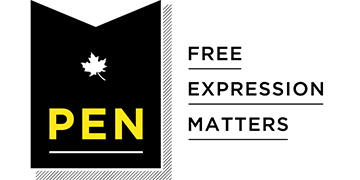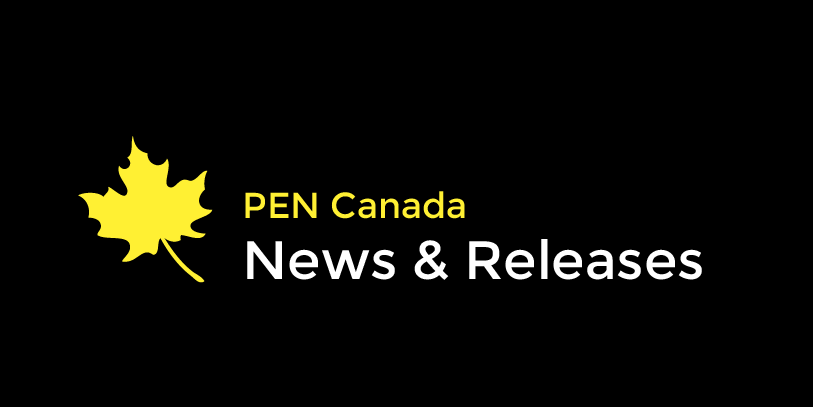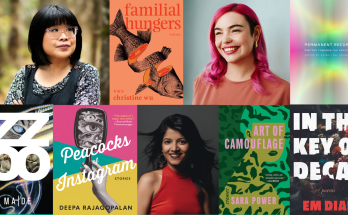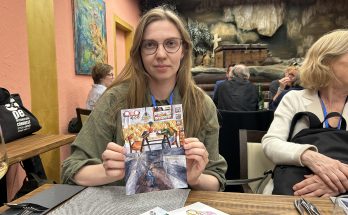PEN Canada’s Ken Filkow prize recognizes an individual or group that has advanced freedom of expression in Canada. It is named in memory of the distinguished Winnipeg lawyer Kenneth A. Filkow, Q.C. Tim Bousquet is founder, editor and publisher of the Halifax Examiner, an independent online daily newspaper established in 2014.
PEN Canada: Your article, “A Tale of Enormous Suffering” – about the exoneration of Glen Assoun, after 16 years in jail for a crime he did not commit – reads like a Grisham novel, or a case from the Innocence Project. As these comparisons suggest, many Canadians tend to think that stories like this happen elsewhere. Why does the mainstream press cover stories like this so poorly?
Tim Bousquet: For several reasons, I think.
The obvious reason is that there is a lack of resources for newsrooms, and reporters are stretched too thin. When I last worked at a corporate daily newspaper (in 2004), I was required to file two articles a day, plus a weekly “enterprise” piece. That was taxing, to put it mildly, and every day I had to make decisions about which stories I would pay more attention to, and which I would basically phone in. I’m not proud of that; it was simply the only strategy to make it through the day. Since then, the demands on reporters have only increased. They’re increasingly expected to do audio and video, and to engage with readers on social media. This necessarily means that less time is available for long-term and investigative projects. Weirdly, because I own a smaller niche publication, I can actually spend more time and money on selected projects than can the big corporate media. My investigation into the Assoun wrongful conviction case took 11 months of my time, and around $5,000 in costs. (That’s increasing by another $3- or $4,000 as we go to court to get a publication ban lifted.) I made that decision based on my personal bet that this was a story that needed to be told; but that kind of bet would never pass the cash-strapped corporate CEO test in place at the legacy media organizations. Another reason the mainstream press covers wrongful convictions badly is that there is an enormous pro-prosecution bias. Reporters on the court beat have ready access to crown prosecutors and police, and are hesitant to burn those bridges. It’s easier to simply rewrite a crown press release or transcribe the prosecutors’ opening statement than it is to actively engage with the case as an independent observer.
PC: Where do you get your news? Which journalists/outlets do you rely on for important but under-reported stories?
TB: Oh, I’m on the lefty blog and news circuit. I read all the radical press in the U.S., and here in Canada I subscribe to publications like the Tyee and the National Observer. Closer to home, I support my colleagues trying to match what the Halifax Examiner is doing, like Mary Campbell with her Cape Breton Spectator.
PC: The Trump presidency has reinvigorated investigative journalism in America, particularly for complex stories like the president’s finances. If you had resources comparable to the New York Times or Washington Post what big stories would you investigate?
TB: The New York Times ’ investigation into Trump’s wealth and tax history is incredible. My back-of-the-envelope calculation was that they spent something like $2 million on the first article alone — for one article! That’s important work that should be applauded. If I had such resources, I would turn that sort of investigative power towards climate change and the related issues of inequality and human migration. That is, I’d work to make the connections between those issues tangible: how the wealthy are quite literally speeding the destruction of the planet for their own temporary personal profit at the expense of the rest of humanity.
What scares me most about Trump and his supporters is their utter abandonment of an external world … Up is down, black is white, it doesn’t matter so long as it suits their purposes. This is madness; left unchecked will lead to terrible, unimaginable horrors.
PC: In “Breaking News” Alan Rusbridger writes: “We are, for the first time in modern history, facing the prospect of how societies would exist without reliable news – at least as it used to be understood … There is a new democracy of knowledge that has swept over us so suddenly and so overwhelmingly that it is almost impossible to glimpse, let alone comprehend. Much of it is liberating, energizing and transformative [and much is] poisonous and dangerous … In the new horizontal world people are no longer so dependent on the ‘wisdom’ of a few authority figures. The reach and speed of public connectedness is unbeatable by any media organisation on earth. Journalists, business and politicians are left looking out of touch and flat-footed.” How has the shifting media landscape in Canada affected your work?
TB: For the present, I think it helps the Halifax Examiner. People are trusting us as an alternative, and often a better alternative — more truthful, more willing to break the code of the powerful — to the mainstream press. I have, however, worries about the general degradation of the notion of “truth.” What scares me most about Trump and his supporters is their utter abandonment of an external world that exists outside their own perspectives. Up is down, black is white, it doesn’t matter so long as it suits their purposes. This is madness; left unchecked will lead to terrible, unimaginable horrors. I don’t know what reporters are supposed to do about this. We tell ourselves that we should double down on truth-telling and hope that the fictional worlds built around white nationalism and protofascism burn themselves out. But that hasn’t been how it’s worked in history. I need to make the time to learn more about that history, by, for example, taking a deep dive into Hannah Arendt ’s work. I particularly want to think about how the press operated in the 1920s and 1930s. I’m not sure I’m answering your question. I guess I’m saying that while I find the current democratization of media liberating, it may contain the seeds of its own destruction. I’m not very hopeful, to be honest.
PC: What books/articles would you recommend to someone interested in read good investigative journalism in Canada?
TB: Oh, start with my own Dead Wrong series! There are lots of other reporters doing good work. I enjoyed listening to Justin Ling’s podcast (on CBC) about gay people who have been murdered in the Village. Hilary Beaumont at Vice is doing under-recognized but essential work on Canadian mining companies around the world. Bruce Livesey’s work on the Irving family (in the National Observer) is fundamental to understand the Maritimes. And of course Andrew Nikiforuk, now writing for the Tyee, is pretty much the only honest broker on the energy industry in Canada.




